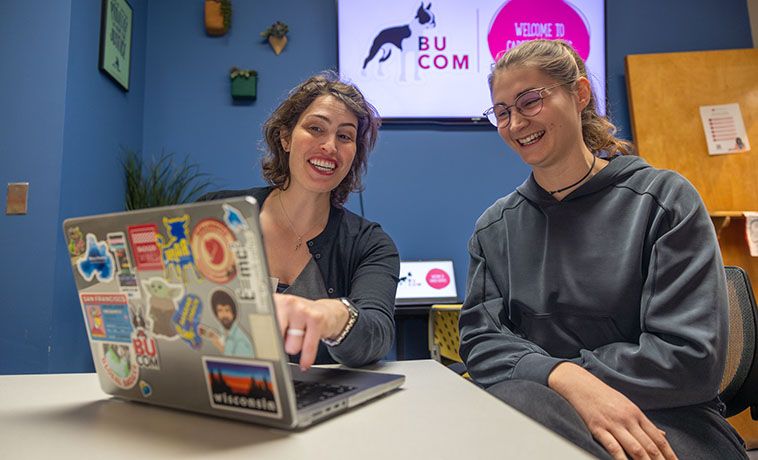A Sustaining Vision for Myanmar
A witness to the coup, strategic communication specialist Kaye Lin is focused on democracy for her native country
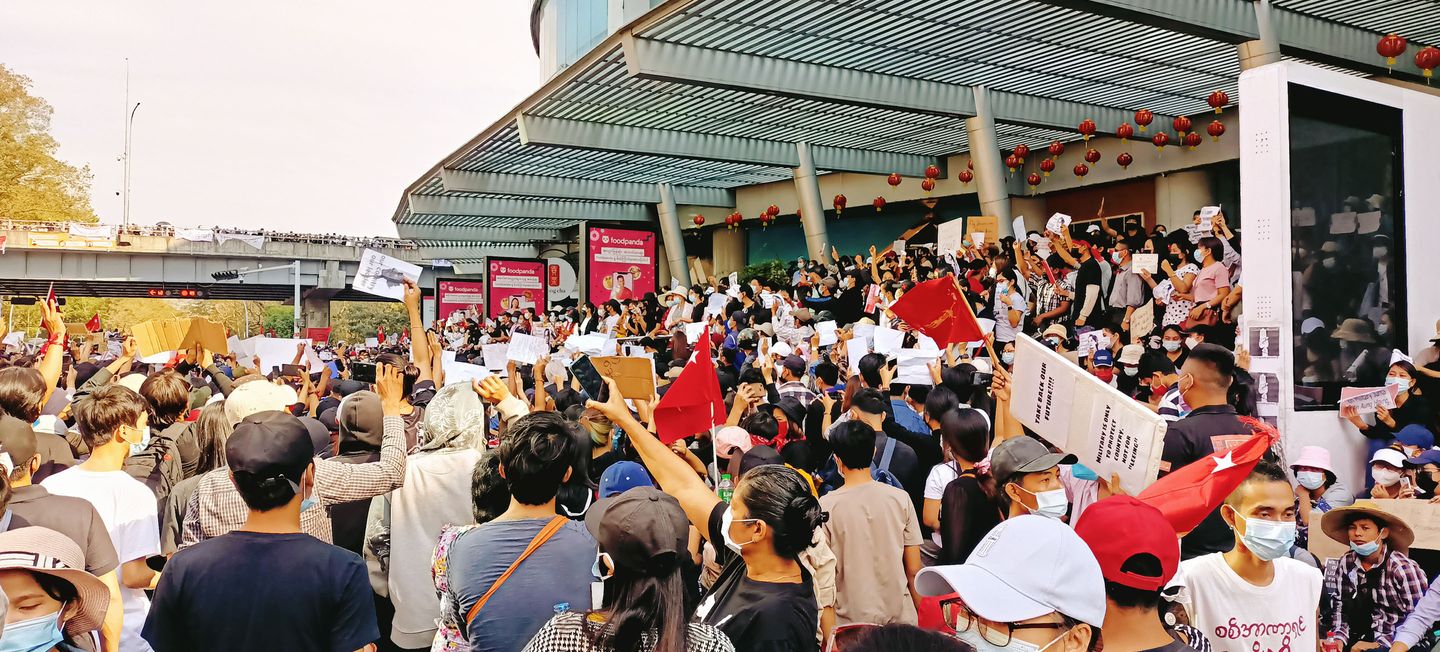
Protesters gather in Hledan township which was once the epicenter of protests in Yangon. (March 2021, Hledan township, Yangon, Myanmar)
On February 1, 2021, just months after Aung San Suu Kyi and her National League for Democracy party had won a landslide election, the Myanmar military seized control of the country, arresting Suu Kyi and declaring a state of emergency.
Kaye Lin was in Yangon, the country’s largest city, that chaotic day. “I woke up around 7 am and the world had suddenly turned upside down,” Lin (’08) says. “There were no phone lines working, no mobile Wi-Fi, no electricity. I didn’t even know there had been a military coup until a friend from Florida messaged me.”
Born in Myanmar—then known as Burma—Lin left at age 6 when her parents fled an earlier military coup. Repatriated as an adult, Lin had spent the previous three years leading communication efforts for First Myanmar Investment, which was working on international joint ventures and helping to develop the economy of the Southeast Asian nation of 54 million people. “FMI was recruiting talent to come back to Myanmar to help rebuild the country. I returned to make an impact. To help build a democratic and economically thriving country—one that would offer opportunities to its people,” she says.
Among Lin’s first projects for FMI was leading communication efforts on an international joint venture between FMI and global advertising giant JCDecaux. The venture brought “beautiful, functional and well-lit bus stops” to Yangon, says Lin. She wrote speeches for the Yangon regional government ministers and FMI’s leadership team related to the launch.
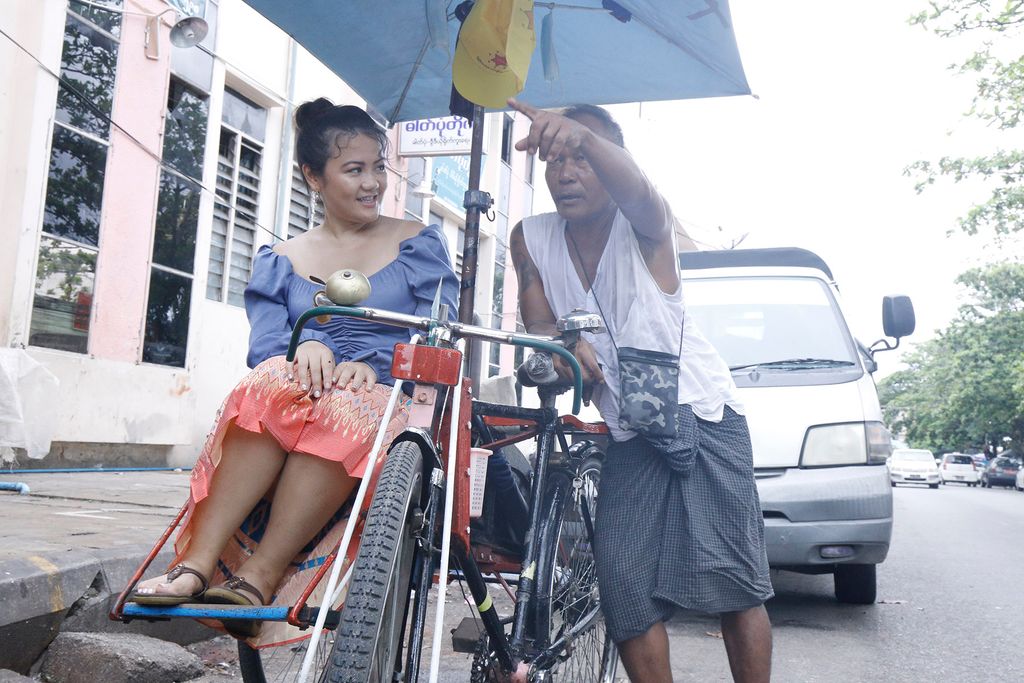
Kaye goes around Yangon, Myanmar’s biggest capital city aboard a bicycle trishaw. The guide gives her advice on the local food spots to try and the colonial architecture to see. Trishaws were very popular but have begun to see a decline since the rise of cars ( and now Covid as well as the coup). ( December 2020; Yangon, Myanmar – Myanmar before the coup) 
The Secretariat is one of Myanmar’s most iconic and colonial masterpieces that sits at the heart of Yangon. It was once the home and seat of the British administration in Myanmar (then called Burma). As Myanmar goes through uncertain times, the Secretariat symbolizes British rule as well as fractured hopes of Myanmar. ( December 2020, Yangon, Myanmar- Myanmar before the coup)
A Coup and Déjà Vu
The military coup caught nearly everyone by surprise. “I’d only heard about coups from my parents, who left Myanmar because of the coup in 1988. And here we were again,” Lin says. “I just sat on my bed that morning thinking, ‘So what do I do now?’”
As the military took control of Myanmar, demonstrators took to the streets demanding the restoration of democracy. People stopped working all across the country in defiance of the military. Meanwhile, the junta unleashed a reign of terror against its own people, as soldiers shot into crowds and hundreds of people were killed.
“It was scary, especially at night,” Lin says, “The military were arresting people without warrants, using psychological warfare. After the coup, I packed a bag and moved temporarily to my cousins’ house…. I’d sometimes hear gunshots at 2 am or hear bombs going off.”
In the anxiety-filled days and weeks that followed, says Lin, “no place in Myanmar seemed safe. The junta arrested some of my friends just for speaking their minds. I even started deleting photos and messages from my phone and carried a second phone just in case the police stopped me.” Since February 1, hundreds of thousands of people have fled Myanmar for nearby Thailand, India and elsewhere. Lin is now one of them.
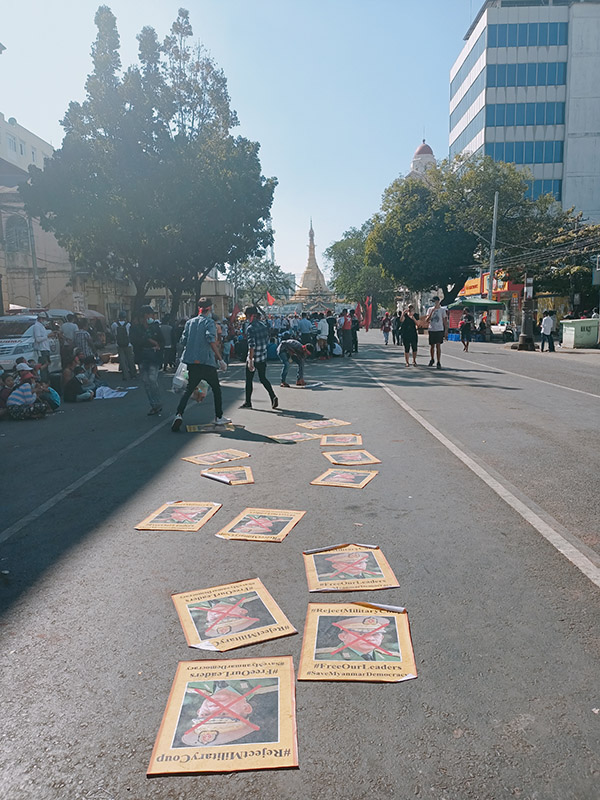
In early February, during the early stages of the protest, Generation Z protesters throw pamphlets with General Min Aung Hlaing’s face on the ground to symbolize a superstitious belief that to walk on somebody’s picture/photo is a sign of disdain. ( February 2021, Yangon, Myanmar) 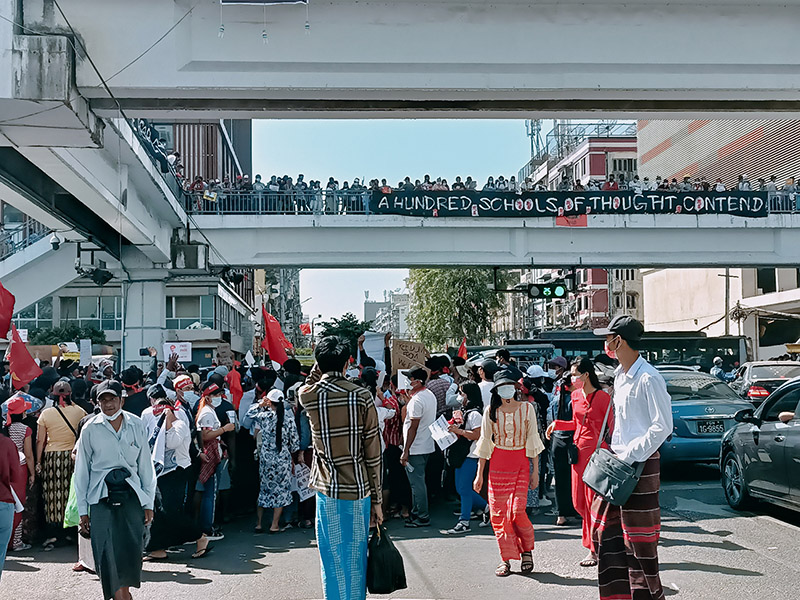
Even with internet shutdowns across the whole country and hundreds of anti-coup protesters dying due to the crackdowns by security forces, demonstrations still persist mainly led by Geration Z. ( February 2021, Sule Square, Yangon, Myanmar)
Bringing Positive Impact through Communications
Lin’s “first real job” after graduating from COM was with Voice of America (VOA), the US-funded international broadcaster. She worked in Washington, D.C., for the Burmese service, developing programs for her native country. While at VOA, Lin created an edutainment show called Ma Kyae Mone English, which was broadcast to Myanmar, teaching English and aspects of American culture.
Lin eventually departed the broadcaster after a decade. “I was becoming desensitized to the news,” she says. “You’d wake up and it was like, ‘Oh no, not another shooting.’ Sometimes I’d just have a good cry and get back to work.” And then there was the pull of helping her native land. “I’ve always loved the strategizing and entrepreneurial side of communications,” she says. “It doesn’t matter to me what job title you have, it’s mainly about the impact you make.”
Amid Tragedy, Silver Linings
Lin recently returned to the United States after more than three years in Myanmar. She has continued her passionate engagement with her native country. Having seen so much tragedy, she’s also observed silver linings in Myanmar. Despite years of propaganda and army crackdowns against ethic groups like the Rohingya, Lin says, “we’re now seeing all ethnic and religious groups in Myanmar working together against the military, recognizing that unity is essential.”
She points to the growing civil disobedience movement: “It has shut down the whole country and people have decided not to return to work until democracy is restored in Myanmar.”
More Work Remains
Living in the US again, Lin is now a strategic communications consultant focusing on development work through sustainable means in Myanmar and other emerging countries. She’s also tweaked her YouTube and Facebook educational program (done in Burmese and English) to focus on US civil rights leaders who opposed government oppression with civil disobedience. Recently, Lin has produced videos about Rosa Parks, Martin Luther King, and Frederick Douglass. “People in Myanmar are downloading VPNs [virtual private networks] and sending out tweets on #WhatsHappeningInMyanmar to make the world aware of the tragedy unfolding there daily,” she says. “I’ve been spreading awareness and doing what I can to help.”
During these difficult days, Lin has leaned on relationships to sustain her, starting with family and including friends and colleagues. “The friendships I made at BU years ago have stayed with me.” Lin describes a recent phone call when a friend reached out to check in. The friend noticed something in Lin’s voice and asked if she’d been crying, something Lin confirmed. “My friend then told me she’d been crying too, because she’d just seen two people holding hands in the park,” says Lin. “Hearing that perspective from a friend really helped me, calmed me down. I just had to laugh, because you can mourn, but you can’t keep mourning forever.”
Lin has also been sustained by a vision of the world developed at BU years ago: “BU helped me understand the way the world could be, a world marked by a diverse community of people who care for and care about one another. I was so fortunate to have experienced those relationships and that vision at BU, which has helped inform who I am to this day.”

